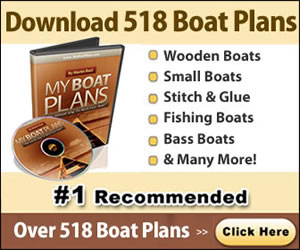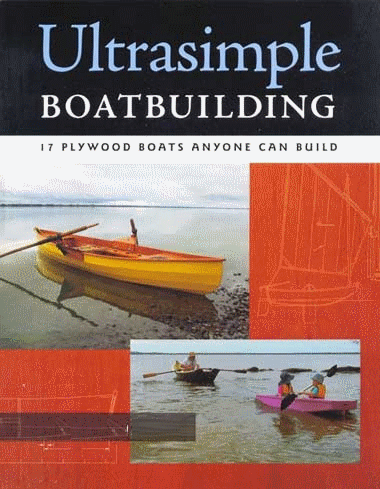
 |
| A progressive cruiser from a venerable builder |
Tartan Yachts is a time honored marque in yachting. The Tartan 37 and 41 set high standards for sailing yachts back in the 1970s and 80s. In more recent years the company has been buffeted by the economic storms weve all had to weather lately and Im glad to see that they appear to be surviving, and perhaps even thriving under new ownership. The 4000 is their latest offering in the forty foot range. As you may know, Sailing World Magazines panel of experts named it 2012 Boat of the Year, so I think its worthwhile to take a good look at the boat.
Like all the recent Tartans, the 4000 was designed by Tim Jackett to be a wholesome and well appointed cruiser/racer, with the emphasis, in my opinion, on cruiser. Starting with the profile view of the boat I must say it is refreshing to see a new boat that hasnt been pushed to the far edges of the design envelope in pursuit of interior volume. The sheer is elegantly sprung and there is a nice aesthetic balance between the rake of the stem and the slope of the transom. Below the waterline the hull is relatively deep amidships and fairs into finer waterlines aft than we see in the newer boats from Europe. That raked stem has practical value beyond aesthetics. Cruising boats with plumb stems invariably accumulate scrapes and marks around the bow from the anchor chain or rode unless they have fairly long bow planks. Tartan refers to the keel as a beavertail. It looks like a squished bulb to me, which is fine. It gets the weight low without excessive draft and should provide good stability for this well balanced boat.
 |
| The bulb is different looking, but it does get the lead down where you want it. |
The Tartan 4000 is propelled by an interesting sailplan that they call a Cruise Control Rig or CCR for short. The mast is carbon fiber as is the boom, which is V-shaped to capture the mainsail when it is doused, eliminating the need for a canvas stackpack. Thats a nice arrangement that I think will work well. The boat is rigged with double headsails on roller furlers. The forward one is a genoa and just a few inches aft of it is an inner forestay that carries a small working jib that sheets to a thwartships track just forward of the mast, making it self tacking. The idea is that in light air youll use the genoa and when the breeze is up youll switch to the working jib. For cruising, this arrangement might be okay as long as you remember that when sailing under the genoa, it has to be rolled almost all the way in whenever you tack. On the other had, when sailing under the working jib, that rolled up genoa is right in front of its leading edge, spoiling airflow and compromising its effectiveness. I think a better solution would be a single headstay with a well made foam luffed 140% genoa on a reefable furler. You would save the weight and cost of the second furler and have equal or better all around performance.
 |
| Tartan 4000 Cruise Control Rig |
In the profile view of this boat its hard to fault the nice lines in of the deck. Its relatively low and well proportioned, with good clearances along the side decks. Ive given up on criticizing mid-boom sheeting since my own boat is rigged that way. Its not optimal from a sailing perspective but it makes other things work better, so I grudgingly accept it. The cockpit on the T4000 is really well done. Halyards and control lines are led to a pair of winches on the cabin top and the coamings are wide enough to sit on. Notice in the photo below that the mainsheet traveler is mounted on the cockpit sole, which is a practical thing to do. It might take a bit of getting used to, but it opens up the cockpit and offers much better sail control than the standard mid-boom unit. The boat has twin wheels mounted on nicely designed carbon pedestals. The photos also show that the hull is quite beamy aft, but there is considerable flair in the aft sections of the hull. I think this is a nice compromise that will reward this boat with good sailing manners in a breeze while still allowing for plenty of room in the cockpit.
 |
| Nice cockpit arrangement. Cruisers will miss having a swimstep built into the transom. |
The accommodations in this boat are a pleasant surprise. The layout is thoroughly modern, with a queen-size berth in the forward cabin and strategically angled bulkheads in the main salon. The galley is large and offers plenty of counter space and storage. The nav station is also large and well designed, and just aft of it is a good sized quarter-cabin. All of these spaces work well and the only missing item is a good sea berth. Aboard the Finisterra Ive designed a lee-board to fit in the quarter cabin to make a snug berth for offshore passages and the same could be done with this boat. I think the designer was able to incorporate the nice open spaces into the boat because it has only one head. Personally, I think one head is enough for a cruising couple with occasional guests. Aboard the T 4000, they werent content with building a nice spacious and practical head, they incorporated a circular door for the shower. It may be cute as a bugs ear, but I prefer to eschew such gimmicky features that are likely to give trouble at some point.
 |
| Nice layout and solid wood joinery make for pleasant living aboard |
I really do like the nice solid wood joinery in this boat. It is a refreshing departure from the IKEA-like styling of the new European inspired boats Ive been looking at lately. I saw one of these boats at a recent boat show and admired the quality of the furnishings. The engine is a 55shp Volvo with a saildrive located under the companionway. That many horses will push the 4000 along at hull speed in almost any conditions. Back in my boatbuilding days we installed a good many saildrives, mostly Yanmars, and they work very well especially on racing yachts. But I personally prefer the trusty shaft and strut type for long distance cruising. Ive seen more than a few boats having saildrives replaced in inconvenient harbors.
 |
| Traditional wood joinery makes for very pleasant accommodations |
The Tartan 4000 looks like a sweet ride for local cruising and club racing, and it could easily be optimized for offshore passagemaking. It has some interesting features such a cast and polished fairleads for the mooring cleats that add a touch of class . My guess is that most of the time youll bypass them, but they sure are pretty. I checked PHRF numbers for this boat and it looks like the rating is going to settle in the 72-84 range, which is quite respectable for this boat. Im sure the good looks, build quality and BOTY award will generate lots of attention for this boat. Its definitely worth a look.





0 komentar:
Posting Komentar